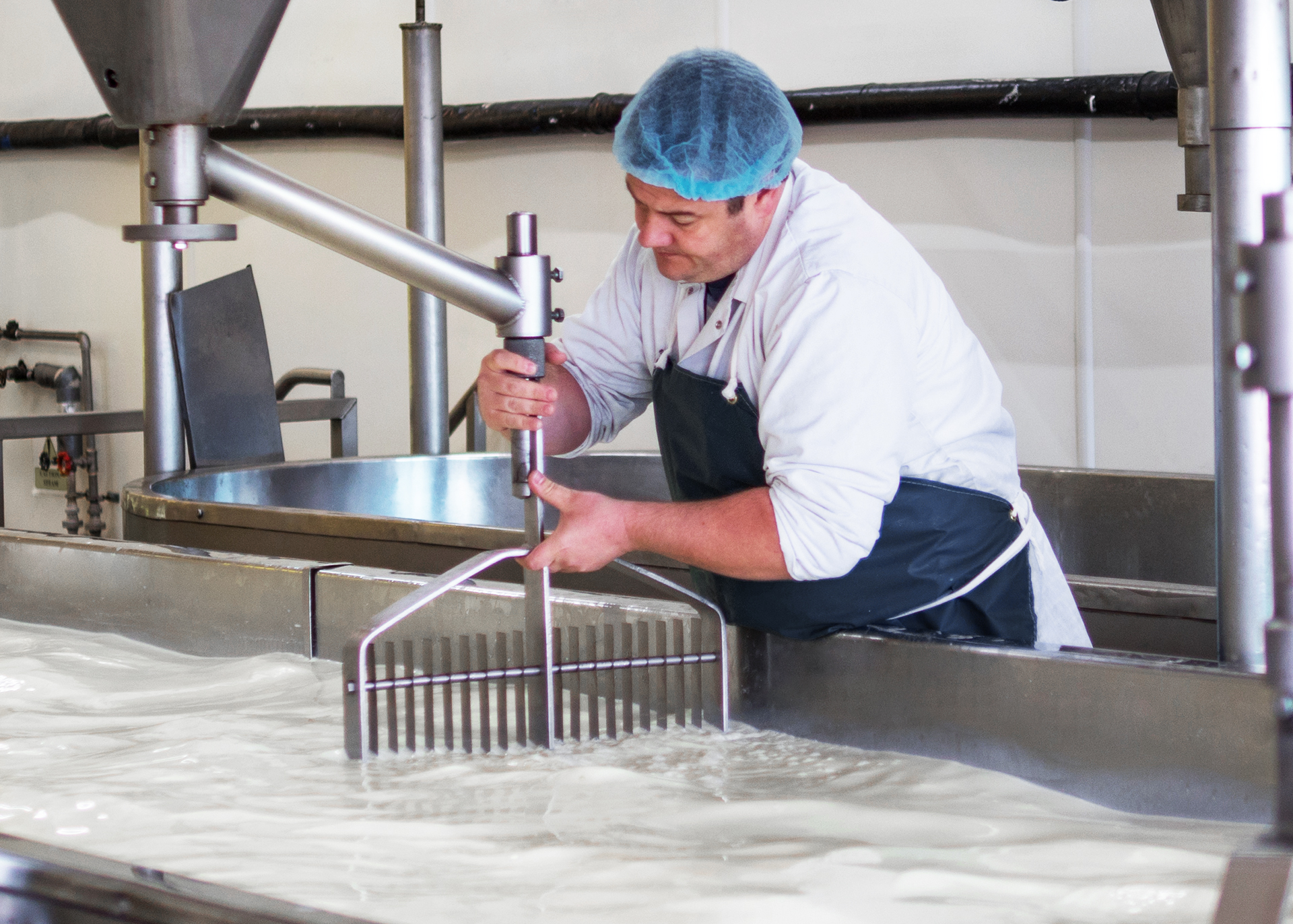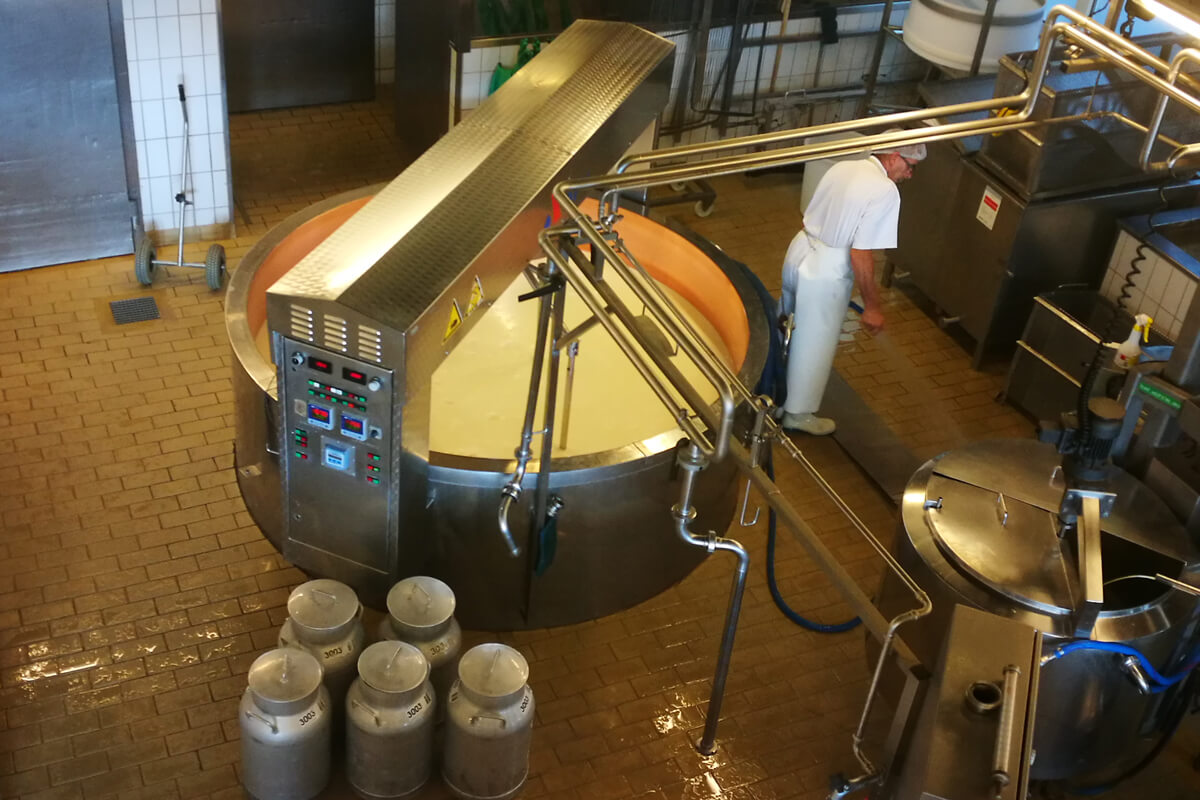Cheese Makers Melbourne: Crafting the Finest Cheeses Locally
Discovering the Art of Cheese Production: Techniques, Procedures, and Advancements in the Milk Market
The exploration of cheese manufacturing encompasses a diverse range of methods and procedures that mirror both historical practices and contemporary advancements within the milk market. By taking a look at the complex art of fermentation, aging, and contemporary production approaches, one gains understanding right into exactly how artisans and large manufacturers alike adapt to evolving customer preferences and sustainability challenges. As we take into consideration the ramifications of these developments, it comes to be vital to examine how they will certainly form the future landscape of cheese and its function in our diets and culinary methods.
History of Cheese Making
Mapping its beginnings to ancient worlds, the background of cheese making discloses an abundant tapestry of cultural and technical advancement. Proof recommends that cheese production dates back over 7,000 years, with historical searchings for from regions such as Mesopotamia and the Indus Valley showcasing very early dairy products techniques. These cultures used milk from domesticated animals, and through natural processes of fermentation and curdling, they generated primary forms of cheese.
As people proceeded, the art of cheese making came to be much more fine-tuned. The old Egyptians and Greeks documented their methods, that included a selection of milk sources and diverse methods for aging and flavor cheese. The Romans further sophisticated cheese production, exporting their knowledge throughout Europe, which led to regional adaptations and unique selections.
The Center Ages observed the facility of abbeys as facilities of cheese manufacturing, where monks established unique recipes that mirrored regional tastes and available resources. Throughout the centuries, cheese production has progressed, affected by aspects such as geography, environment, and cultural techniques. This rich background not just illustrates the ingenuity of early societies yet additionally lays the foundation for the varied cheese selections enjoyed today around the world.
Standard Cheese Production Methods
Typical cheese production strategies incorporate a selection of classic approaches that have actually been given via generations. These strategies, commonly region-specific, mirror the one-of-a-kind social heritage connected with cheese-making. The process normally starts with sourcing high-grade milk, which can differ in kind depending upon the preferred cheese.
Coagulation is accomplished with the addition of rennet and sometimes an acid, resulting in the formation of curds. The curds are then reduced and delicately mixed, permitting whey to divide. This first coagulation stage is critical, as it influences the texture and wetness web content of the final item.

Fermentation and Aging Procedures
Fermentation and aging processes are essential to the growth of cheese, occurring after the initial curdling and pressing stages. Throughout fermentation, details bacterial cultures are introduced to the curds, facilitating the conversion of lactose into lactic acid. This acidity not just helps in curd conservation but likewise adds to the flavor account and structure of the end product.
As the cheese ages, biochemical responses continue to take place, affecting its preference, scent, and structure. Different cheeses require varying aging durations, which can vary from a couple of weeks to a number of years, leading to distinct features.
In addition, the existence of molds or yeasts on the cheese surface area can better improve flavor complexity. As an example, blue cheeses rely upon details mold and mildew cultures to develop their trademark taste accounts. On the whole, both fermentation and aging are crucial in defining the individuality of cheeses, enabling craftsmens to create a diverse array of products that accommodate a vast array of tastes.
Modern Advancements in Dairy Products Production
Advancements in milk manufacturing have actually transformed the cheese-making process, boosting efficiency and product top quality. Technological developments, such as automated bleeding systems and accuracy fermentation strategies, have streamlined procedures and enhanced uniformity in raw milk high quality. These systems view decrease labor prices and improve pet welfare by enabling more comfy and efficient milking methods.
In addition, the consolidation of data analytics and IoT (Web of Things) tools has actually allowed milk producers to keep an eye on different parameters, such as temperature and moisture, in real-time. cheese store melbourne. This ability makes certain optimal conditions throughout the cheese-making process, bring about a better end item
Furthermore, developments in pasteurization methods, including high-temperature short-time (HTST) pasteurization, have not only raised food safety and security but likewise protected the fragile tastes and nutrients integral in milk.
Lasting practices are additionally getting grip, with developments in waste management and renewable energy application. Several manufacturers are currently harnessing biogas from dairy products waste, advertising environmental stewardship while all at once lowering operational expenses.
These modern innovations jointly add to a much more effective, sustainable, and high-grade cheese manufacturing process, establishing new standards in the dairy products sector.
Future Trends in Cheese Industry
As the cheese industry remains to advance, arising fads are improving manufacturing, intake, and advertising methods. One considerable fad is the expanding need for artisanal and specialized cheeses, driven by customers seeking special flavors and top quality active ingredients. This shift is urging manufacturers to embrace typical techniques while integrating modern-day technology for boosted quality assurance.
Sustainability stays at the leading edge of consumer choices, prompting manufacturers to check out environment-friendly methods, such as minimizing water use, enhancing power intake, and using biodegradable packaging materials. Furthermore, developments in plant-based cheese options are expanding market chances, accommodating the raising number of vegan and find out this here lactose-intolerant consumers.
Furthermore, electronic advertising and marketing and shopping are revolutionizing how cheese is marketed and marketed, allowing manufacturers to link directly with customers and tailor their offerings to details demographics. Registration services and on the internet platforms are coming to be popular channels for cheese circulation, enhancing ease of access and convenience.
Last but not least, health-conscious trends are influencing cheese solutions, with producers developing lower-fat, lower-sodium, and nutrient-enriched options to meet customer demands. As these fads remain to unfold, the cheese industry is likely to witness a vibrant change that straightens with modern-day customer worths and choices.

Verdict
The exploration of cheese production reveals an intricate interplay of classic methods and contemporary innovations. Typical approaches, rooted in historic practices, proceed to influence modern manufacturing while adjusting to progressing consumer choices. Fermentation and aging processes remain important to taste growth, while developments in innovation boost performance and sustainability. As the dairy sector embraces health-conscious patterns and environmentally friendly methods, the future of cheese production promises learn this here now ongoing growth and innovation, guaranteeing its enduring relevance in cooking society.